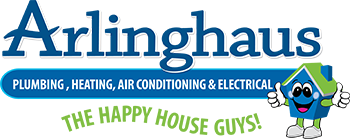If there is one thing you know for sure, it’s that you do not want to discover your HVAC equipment is dead right when you really need it. You need to take a good look at your HVAC system and consider replacing old appliances, at least every 10 to 15 years. The benefit regular replacement is that you can usually get higher efficiency and greater comfort for your investment. Look at these heating & air conditioning factors before you upgrade your home comfort solution.
System Type
There are many different ways you can heat or cool your home. If you want the most effective heating & air conditioning, you should use a split system or a packaged system for your HVAC needs. Split systems are more common, especially in newer homes. With a split system, the air conditioning unit or heat pump is located outside the home. The indoor component contains the furnace, air handler and evaporator coil. Packaged systems are typically built into homes with very limited space. They have one unit that is attached to the home’s exterior, typically on the roof.
Ductwork vs Ductless
If your home already has ductwork, you may not need to do anything with it except confirm it is generally clean and does not have significant leaks. Standard split systems rely on ductwork to pass heated or cooled air throughout the home. If your home does not have ductwork, which occurs more often in older homes, you may be able to retrofit the home to accommodate new ductwork. Otherwise, you have options for ductless heating and cooling. For example, you can select a ductless mini-split that delivers cooled air through many air handlers attached to the wall in separate rooms.
Air Conditioning vs Heat Pump
Anyone living in a warm climate needs effective cooling, but you may not require an air conditioner to achieve it. In milder climates where the temperature doesn’t get very hot or very cold, a heat pump is a cost-effective and energy-efficient choice. Air conditioners pass warm air over coils, using refrigerant to remove the heat and transplant it outdoors. Heat pumps draw warm air from the home and expel it outside during the summer, and reverse the process during the winter. However, heat pumps are not as effective at higher temperatures. If you want to beat the heat at temperatures higher than 85 degrees, you may appreciate the lower initial investment of an air conditioner.
Correct Sizing
Many HVAC experts will tell you the most important choice you can make for heating & air conditioning is to purchase a unit that is properly sized for your home. It may seem like bigger is always better, but that isn’t true in this case. A system that is too large will cycle on and off very quickly, without enough time for the equipment to remove adequate humidity from the home. An appliance that is too small will not heat or cool effectively and may cost more to run. Your HVAC technician will ask about your home’s square footage and the kind of heating and cooling you need to formulate a size recommendation based on the particular weather pattern in your area.
Efficiency
Once you know the size of the equipment for your home, you can consider efficiency. Size determines how much output your furnace, air conditioner or heat pump can provide. Efficiency shows you how much heat or cool air the system delivers related to the energy consumed. Furnaces are measured in Annual Fuel Utilization Efficiency (AFUE). A furnace with an AFUE of 90 will convert 90 percent of the energy to heat. Air conditioner and heat pump efficiency is dictated in the Seasonal Energy Efficiency Ratio (SEER). The rating is determined by anticipating how many hours you will use it during any given season. The higher the SEER rating, the greater the efficiency.
Thermostats
Selecting new HVAC equipment requires you to think about your thermostat as well. Even the most efficient furnace or air conditioner will be hampered by a manual thermostat that is always adjusted on the fly. A programmable thermostat makes it simple for you to create settings you prefer, and then enjoy heating and cooling on a schedule that you do not have to think about. If you want to upgrade to a smart thermostat, you will appreciate additional services, such as detailed monitoring of your energy consumption or the ability to change settings on your smartphone.
Budget
Your financial restrictions may also dictate some limitations on the kind of system you can purchase. If you need a new furnace, you may choose to forego an Energy Star system in favor of a furnace with a slightly lower efficiency that is more affordable initially. However, you should bear in mind that replacing old, worn or ineffective HVAC equipment is an investment for the future. Better efficiency can lower your utility expenses, which helps offset the original cost of purchase and installation.
System Upgrades
The point of replacing one or more pieces of HVAC equipment may be the opportunity you have been waiting for to upgrade the system to something better. If you are already planning to shift from baseboard heating to a heat pump, you might also consider the longevity and efficiency of geothermal heating and cooling. Getting rid of your old window air conditioners could be an excellent time to upgrade to a multi-split ductless air conditioner, with individual zones you can customize to your preference.
Warranties and Maintenance Services
Once your new HVAC system is installed, you’ll need to set aside some money to take care of it. Most manufacturers of HVAC equipment provide a warranty for the system, assuming it’s installed by a qualified technician. After the first couple of years, the warranty may cover certain parts for varying lengths of time. Ask your HVAC technician about extended warranties available through the manufacturer or the HVAC company. Installation is also an excellent time to discuss maintenance plans with the company installing the equipment. You may feel perfectly comfortable replacing air filters regularly, but professional service once a year is crucial to the efficiency and longevity of your system. Maintenance plans help offset the occasional expenses of HVAC upkeep, and may also give you discounts on repairs.
Select the Heating & Air Conditioning Solution That’s Right for You
Updating your HVAC system can feel a little intimidating, but there are ways to make it a lot easier. Once you know what you need to research, you can select systems and equipment that are ideal for your home and your family’s needs. In almost no time at all, you can enjoy better home comfort and possibly even lower energy bills for your effort.


